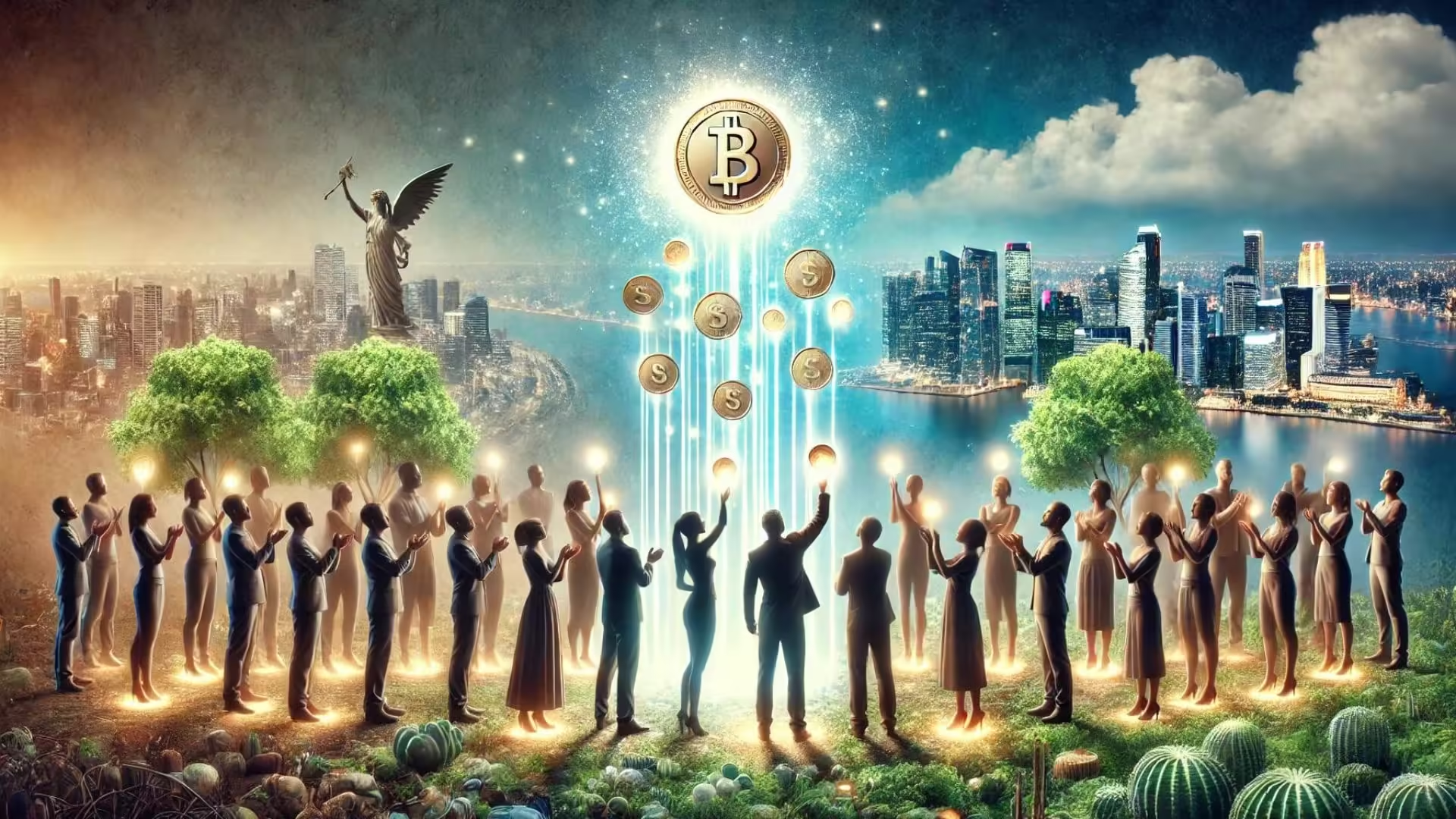The idea of a universal basic income (UBI), where every individual receives a guaranteed income regardless of whether they work, has moved from a fringe concept to the center of global economic debates. Advocates argue that it’s a necessary solution to address inequality, automation, and poverty, while critics believe it could disincentivize work and strain government budgets. In a world where jobs are increasingly threatened by automation and wealth inequality is rising, UBI forces us to reconsider the value of work, security, and fairness in society.
What is Universal Basic Income?
Universal basic income is a system where the government provides all citizens with a regular, unconditional sum of money, enough to cover basic living expenses. Unlike traditional welfare systems, which are often means-tested or conditional, UBI is given to everyone regardless of income level, employment status, or wealth. Its simplicity is part of its appeal, as it removes the bureaucracy involved in welfare distribution and ensures that no one is left without financial support.
The Case for Universal Basic Income
- Addressing Poverty and Inequality:
One of the strongest arguments in favor of UBI is its potential to reduce poverty and bridge the widening gap between rich and poor. As automation continues to replace jobs in industries ranging from manufacturing to customer service, many workers face an uncertain future. UBI could act as a safety net, providing financial security in the face of technological changes and economic disruptions. - Empowering Individuals:
With a guaranteed income, individuals would have greater freedom to pursue passions and career paths that may not have immediate financial returns, such as creative work, caregiving, or starting a business. This empowerment could lead to greater innovation and personal fulfillment. Moreover, UBI could improve mental health by reducing the anxiety and stress associated with financial insecurity. - Simplifying Welfare Systems:
Current welfare programs can be complex and difficult to navigate, often requiring extensive paperwork and eligibility checks. UBI would eliminate the need for these bureaucratic processes, ensuring that everyone has access to the financial resources they need to survive, regardless of their circumstances. - A Response to Automation:
As technology advances, many fear that machines will take over jobs traditionally done by humans, leading to widespread unemployment. UBI is seen by some as a solution to this problem, ensuring that even if jobs disappear, people will still have an income. By decoupling income from employment, UBI could also encourage society to rethink the value of unpaid work, such as caregiving, volunteering, and creative pursuits, which are essential but often go unrecognized in a traditional economic system.
The Challenges and Criticisms of Universal Basic Income
- Cost and Feasibility:
One of the biggest concerns about UBI is how to pay for it. Critics argue that providing a guaranteed income for every citizen would place an enormous strain on government budgets, potentially leading to higher taxes or cuts to other social services. There is also the question of whether UBI would be sustainable in the long term, especially in countries with large populations. - Disincentivizing Work:
A common argument against UBI is that it could reduce the incentive to work. If people are provided with a basic income without having to work for it, some fear that they may choose not to work at all, leading to lower productivity and a stagnating economy. However, proponents counter this by arguing that most people derive satisfaction from meaningful work and that UBI would simply provide the financial freedom to pursue jobs that are more fulfilling or socially valuable. - Inflation and Rising Living Costs:
Another potential downside of UBI is the risk of inflation. If everyone has more money to spend, prices for goods and services could rise, especially in housing markets, ultimately negating the benefits of the additional income. Critics argue that without proper regulation, a basic income could lead to higher living costs, making it harder for people to afford essentials despite their new income. - Cultural Attitudes Toward Work:
Societal values around work play a significant role in the debate. Many cultures place a high value on employment as a source of identity, purpose, and social contribution. Critics argue that UBI could undermine the work ethic, leading to a society where fewer people strive for excellence or productivity. However, supporters suggest that UBI could lead to a shift in how we define success and purpose, valuing well-being and creativity over sheer productivity.
A Thought-Provoking Shift: Is Work the Only Path to Meaning?
At the heart of the UBI debate lies a deeper question about the nature of work and its role in our lives. In many societies, work is seen as not only a means of earning a living but also as a fundamental part of one’s identity and purpose. But should our value be tied to our jobs? If a basic income allows people to pursue passions, hobbies, or community service without the fear of financial ruin, does that make for a better society?
Proponents of UBI argue that it could allow for a more human-centered approach to life, where individuals are free to explore their interests, contribute in non-traditional ways, or care for family members without the constant pressure of earning a paycheck. Critics, on the other hand, fear that such a system could weaken the social fabric and lead to a loss of motivation, ambition, and self-discipline.
The Global Perspective: Testing the Waters
Several countries have experimented with UBI-like systems, offering valuable insights into its potential impact. Finland conducted a two-year trial where 2,000 unemployed people were given a basic income. Early results suggested that while it didn’t significantly boost employment, recipients reported improved well-being and reduced stress. Similar trials in Canada and Kenya have shown promise, indicating that UBI could be a viable way to reduce poverty and enhance life satisfaction.
While these experiments are still in their early stages, they suggest that UBI may not lead to widespread laziness, as some fear, but could instead create a more balanced, equitable, and humane society.
The concept of a universal basic income challenges deeply ingrained ideas about work, income, and value. As we move toward a future shaped by automation and increasing economic inequality, it’s worth asking ourselves: Should financial security be a right, not a privilege? And how can we create a society that values all forms of contribution, not just paid labor?
Expand Your Vocabulary
- Universal Basic Income (UBI):
Universal Basic Income refers to a government-provided income that is given to all citizens, regardless of their employment status. In the article, UBI is discussed as a potential solution to economic inequality and job loss due to automation. In everyday conversations, UBI might come up when discussing social welfare or economic reforms, such as “Some countries are experimenting with UBI to address rising poverty.” - Automation:
Automation means the use of technology to perform tasks that were previously done by humans. In the context of the article, automation threatens jobs, which could make UBI necessary. In everyday language, we use this term when talking about technological advancements that replace human labor, like “Automation in factories has reduced the need for manual labor.” - Inequality:
Inequality refers to the unequal distribution of resources, wealth, or opportunities in a society. In the article, UBI is proposed as a way to reduce economic inequality. In common discussions, this term can apply to various societal issues, like “Income inequality has become a major concern in many developed countries.” - Financial Security:
Financial security refers to having enough money to meet one’s basic needs without constant worry about income. The article suggests that UBI could provide everyone with financial security. In daily life, people often strive for financial security through savings or stable employment, such as “She achieved financial security after paying off her debts and securing a long-term job.” - Disincentivize:
Disincentivize means to discourage someone from doing something by removing incentives or rewards. The article discusses concerns that UBI could disincentivize people from working. In common usage, this word might be used in business or policy contexts, like “Raising taxes on investments could disincentivize businesses from expanding.” - Sustainability:
Sustainability refers to the ability of something to be maintained over time. In the article, one criticism of UBI is whether it would be financially sustainable for governments to provide it indefinitely. We also use this term to discuss environmental issues or long-term economic practices, like “Sustainability is a key concern in managing natural resources.” - Welfare System:
A welfare system refers to government programs designed to support citizens in need. In the article, UBI is presented as a simplified alternative to complex welfare systems. In everyday language, this term is often used when discussing public assistance programs, such as “Many people rely on the welfare system for healthcare and housing.” - Feasibility:
Feasibility refers to whether something is possible or practical to achieve. The article raises concerns about the feasibility of implementing UBI on a large scale. In regular conversations, people might use this term when evaluating the practicality of an idea, like “The feasibility of opening a new restaurant depends on securing enough funding.” - Well-being:
Well-being refers to a person’s overall health, happiness, and comfort. In the article, UBI is linked to improved well-being by reducing financial stress. We commonly use this term when discussing quality of life, such as “Regular exercise and healthy eating are essential for maintaining well-being.” - Paid Labor:
Paid labor refers to work for which a person receives a wage or salary. In the article, there’s a discussion about how UBI might change society’s view of paid labor versus unpaid work, like caregiving. In everyday language, we use this term to describe employment that provides income, such as “Many people struggle to find paid labor in today’s competitive job market.”
Let’s Talk
- The article suggests that UBI could provide financial security for everyone. Do you think that financial security should be a basic right, or should it be earned through work?
- If you had a guaranteed basic income, how do you think it would affect your career choices? Would you pursue the same job, or would you take more risks in creative or entrepreneurial fields?
- UBI challenges the traditional connection between work and income. Do you believe that work should be tied to survival, or should people be free to choose work based on passion and personal interest?
- Some critics argue that UBI could disincentivize people from working. Do you think people would stop working if they had a guaranteed income, or would they continue to seek meaningful work?
- Automation is replacing many jobs that were once done by humans. Do you think UBI is a fair solution to help people who lose jobs due to technological advances, or are there better alternatives?
- In the article, the risk of inflation is mentioned as a potential drawback of UBI. How do you think the government could address rising living costs if UBI were implemented?
- Would UBI help reduce inequality, or do you think it could create new social divides between those who work and those who don’t? Why?
- Can UBI shift society’s perception of unpaid work, such as caregiving and volunteering, by recognizing its value? How would this affect people who contribute to society in ways that don’t earn a paycheck?
- Should UBI be tested in more countries as a long-term solution to poverty, or do you think its feasibility is too uncertain to implement globally?
- How do you think society’s views on success and fulfillment might change if UBI allowed people to pursue more creative or altruistic activities without worrying about financial consequences?
These questions are designed to encourage reflection and discussion on the complexities of UBI and its potential impact on society. Share your thoughts in the comments or with friends and family to explore this thought-provoking topic further!










0 Comments